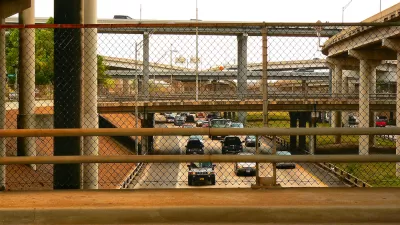A curious discrepancy between two major congestion reports using the same data: There is a profound and unexplained discrepancy between the travel trends in the latest Urban Mobility Scorecard report and the data provided by Inrix.
The Texas Transportation Institute's Urban Mobility Scorecard claims that congestion increased by about 4.7 percent between 2010 and 2014. However, INRIX, which provides the source data used for the Scorecard, actually reported that U.S. traffic congestion declined 29 percent from 2010 to 2014. The new TTI report neither acknowledges nor explains the discrepancy between its tabulation of these data and the one prepared by INRIX.
A new post by Joe Cortright of the City Observatory, "Contradictory Conclusions and Disappearing Data," discusses these discrepancies. Of course, different analyses can produce very different conclusions using the same data, reflecting different analysis assumptions and techniques. Basic academic practices requires researchers to explain their methods in detail, respond to questions and criticisms, and apply peer review, but TTI has so far refused to respond to such requests.
In addition, after the TTI report was released, the link to the monthly INRIX data for 2010 through 2014 was removed from their website. The original INRIX Tableau data has been hosted on a separate public server.
So here's where we currently stand: A separate tabulation of the same data that TTI used for its report concluded that congestion actually declined 29 percent between 2010 and 2014, rather than increasing 4.7 percent as TTI claimed. TTI has never acknowledged this different tabulation of the Inrix data, nor explained why its methodology produces such a different result. The link to the contradictory data has been removed from the Inrix website (although, the data are still available on a public server).
These facts raise important questions about the quality of TTI research and the reliability of the Urban Mobility Scorecard results.
FULL STORY: Contradictory Conclusions and Disappearing Data

Maui's Vacation Rental Debate Turns Ugly
Verbal attacks, misinformation campaigns and fistfights plague a high-stakes debate to convert thousands of vacation rentals into long-term housing.

Planetizen Federal Action Tracker
A weekly monitor of how Trump’s orders and actions are impacting planners and planning in America.

Chicago’s Ghost Rails
Just beneath the surface of the modern city lie the remnants of its expansive early 20th-century streetcar system.

Bend, Oregon Zoning Reforms Prioritize Small-Scale Housing
The city altered its zoning code to allow multi-family housing and eliminated parking mandates citywide.

Amtrak Cutting Jobs, Funding to High-Speed Rail
The agency plans to cut 10 percent of its workforce and has confirmed it will not fund new high-speed rail projects.

LA Denies Basic Services to Unhoused Residents
The city has repeatedly failed to respond to requests for trash pickup at encampment sites, and eliminated a program that provided mobile showers and toilets.
Urban Design for Planners 1: Software Tools
This six-course series explores essential urban design concepts using open source software and equips planners with the tools they need to participate fully in the urban design process.
Planning for Universal Design
Learn the tools for implementing Universal Design in planning regulations.
planning NEXT
Appalachian Highlands Housing Partners
Mpact (founded as Rail~Volution)
City of Camden Redevelopment Agency
City of Astoria
City of Portland
City of Laramie




























